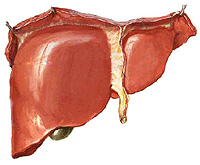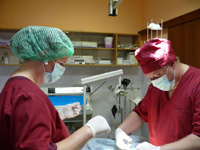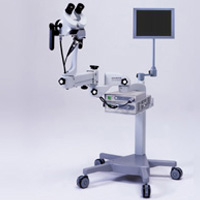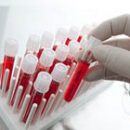What are the causes of liver cancer? Is it possible to avoid the occurrence of liver cancer? How to diagnose liver cancer? What are the methods of the treatment of liver cancer? Answers to these questions you will find in the article.
Content
Causes of liver cancer
Risk factor is something that affects the likelihood of disease. With different tumors there are various risk factors. From some risk factors, such as smoking, you can get rid of. Risk factors such as age or family history can not be changed. The presence of one or more risk factors does not mean the mandatory development of the disease.
Famous risk factors that can contribute to the development of liver cancer:
Floor. Men are more often ill and liver cancer compared to women. Perhaps this is due to the more frequent use of alcohol and smoking men.
Some liver diseases. Chronic infection (hepatitis B or C) is a very important risk risk factor for liver cancer. There are also some hereditary diseases that increase the risk of liver cancer.
Cirrhosis is the result of the formation of scar tissue in the liver, which often leads to cancer. The most common causes of cirrhosis are alcohol and hepatitis in and with. Another cause of liver cancer - excess iron accumulation in the liver.
Tobacco use. There is a relationship between smoking and the development of liver cancer, the risk increases with simultaneous alcohol consumption.
Aflatoxins. The high risk of liver cancer is associated with the consumption of products affected by Aflotoxin B1 (Mitotoxin aspergilis Flavus mushroom) as a result of improper storage (earthy nuts, wheat, soybeans, corn, rice, etc.).
Anabolic steroid - Men's hormones are used by some athletes. Long-term use of anabolic hormones can somewhat increase the risk of liver cancer.
Arsenic. In some parts of light, the use of water polluted arsenic increases the risk of liver cancer.
Contraceptive drugs. The use of these drugs can somewhat increase the risk of liver cancer. Currently, new types of contraceptive drugs are applied and their influence on the risk of liver cancer is not yet known.
Is it possible to avoid the occurrence of liver cancer
Compliance with certain measures to reduce the impact of risk factors, can help prevent most of the cases of liver cancer. All over the world, the most significant risk factor are viruses causing hepatitis B and with. Currently, there is a vaccine against hepatitis in. All children, as well as adult people in a high risk group, must be vaccinated.
Hepatitis Vaccines with Until yet. Therefore, the prevention of hepatitis C (and hepatitis B in unvaccinated people) is based on the knowledge of the distribution of viruses. They apply to blood components overflows, through infected needles in drug addicts that use drugs intravenously, as well as as a result of random sex contacts. In addition, mothers having a hepatitis virus can transfer it to a child when birth or early childhood.
It assumes that interferon and ribarin preparations can prevent the occurrence of liver cancer in patients with hepatitis with. These drugs can be assigned in combination.
To date, it is not proven whether interferon is useful in hepatitis patients.
Alcohol use is the main cause of a cirrhosis that can lead to liver cancer. Refusal of smoking can also slightly reduce the risk of liver cancer
Diagnosis of liver cancer
Due to the fact that liver cancer usually does not give symptoms until the tumor reaches large sizes or goes beyond the body, it is rarely detected in the early stages. In addition, there are no liver cancer screening methods currently, and it is impossible to detect a small tumor during palpation.

Sometimes cooking cancer can be diagnosed during blood test on Alfa-Fetoprotein protein (AFP). This protein is normally present in the blood of the fetus, but soon after the birth of the child he disappears. When this protein is found in the blood of an adult, you can assume that he has a liver cancer.
Blood research on AFP in order to identify a small liver tumor is performed in people in the group of high risk. Unfortunately, some tumors do not produce enough AFP. Often, when the level of protein in the blood is high, the tumor by that time already reaches large sizes and becomes a failure or has already spread beyond the liver. In some benign liver tumors, elevated levels of AFP may also be celebrated.
Many patients with liver cancer over a long period of time there were cirrhosis of this organ. If the patient with the cirrhosis of the liver marks a deterioration of the state, then this may be due to the development of liver cancer.
Some researchers recommend ultrasound research (ultrasound) in people with liver cancer risk factors. Others begin to examine from determining the level of alpha-fetoprotein (AFP) in the blood and only if it is increased, ultrasound recommended.
There is an opinion on the feasibility of applying the above methods in patients with hepatitis B and C or with any kind of liver cirrhosis.
What are the symptoms of liver cancer
The symptoms below can be caused by the presence of liver cancer. However, they may cause other tumors or diseases. When any symptoms appear, you must immediately consult a doctor.
- Slimming without visible reasons
- Long absence of appetite
- Feeling of the stomach overflow when receiving a small amount of food
- Increase the size of the liver or detection of the tumor in the field of liver
- Long abdominal pain
- Yellowish green skin and eyes (jaundice)
- Strengthening weakness in the presence of hepatitis or cirrhosis
What are the methods of liver cancer diagnostics
Ultrasound Research (Ultrasound) Allows you to detect a tumor and in some cases its type.
Computed tomography (CT) very effective when diagnosing liver tumors. In some cases, a contrast substance is intravenously introduced to improve the liver image.
Magnetic resonance Tomography (MRI) Allows not only to detect the tumor in the liver, but sometimes makes it possible to distinguish a malignant tumor from benign.
Angiography. The artery introduces a contrast agent, which allows you to detect vessels, blood supplying tumor, and solve the issue of the operation.
Laparoscopy. Through a small incision in the stomach, a special device is introduced, allowing to examine the liver and other organs, as well as make a biopsy (take a piece of tumor tissue for research).
Biopsy. In case of suspected liver cancer, only a biopsy of the tumor makes it possible to finally diagnose.
Research of blood. The definition of alpha-fetoprotein levels (AFP) in the blood is useful both at the stage of diagnosis of liver tumors, and after treatment for judgment on the effectiveness of therapy and a possible recurrence of the disease.
How is the treatment of liver cancer
There are three types of liver cancer treatment: surgical, radiation and medicinal. Sometimes it is better to use two or all three methods of treatment. The purpose of treatment is the achievement of the best results. If the tumor cannot be removed completely, then it is necessary to strive to remove or destroy the maximum mass of the tumor in order to prevent growth, distribution or recurrence of the disease over a long period of time. Sometimes the treatment is directed only to relief symptoms. This treatment is called palliative.
Operational treatment

Full removal of the tumor or transplantation (transplantation) of the liver give the best chance to recover the patient. Unfortunately, in most cases, complete tumor removal is impossible. Often the tumor is of very large sizes, it strikes several parts of the organ or went outside the liver. In addition, many patients with cirrhosis have no sufficient number of normal hepatic tissue to perform a full-fledged operation.
Liver transplantation is rarely used when cancer of this organ. Such an operation is shown in patients with small multiple tumor nodes that cannot be completely removed. In addition, it is difficult to find a suitable donor for transplantation, to which it takes time.
Ablation or embolization. Under the ablation of the tumor implies its destruction without removal, for example, in case of freezing or introducing alcohol into it. The blood supply to the tumor can be broken as a result of a dressing of the artery that feeds the tumor, or by introducing drugs, blocking the clearance of the arteries. Taking into account the fact that such treatment methods reduce blood supply and normal liver tissues, which is dangerous, especially in patients with hepatitis or cirrhosis.
Chemomicolization is a combination of chemotherapy emblemization. Currently, the question of whether such a combined treatment will be more efficient than one embolization.
Radiation therapy
With this method, you can cut the dimensions or destroy the tumor at the same time, it is impossible to use very high doses, as the normal liver cloth will die in this case. In some cases, radiation therapy is used to reduce the intensity of symptoms, for example, pain. This method cannot be completely cured with a liver cancer.
Currently, the possibility of applying irradiation in combination with chemotherapy to improve the results of treatment.
Chemotherapy
Liver cancer usually does not react to most antitumor drugs. Doxorubicin and Cisplatin are considered the most efficient drugs, but they do not prolong the life of patients. Some believe that the introduction of antitumor drugs into the hepatic artery can improve the results of treatment.
During chemotherapy and after it, the appearance of side effects:
- Nausea and vomiting
- Loss of appetite
- Baldness
- Ozzles in the oral cavity
- Increased susceptibility to infections
- Bleeding or bruises after small injuries
- Tiredness and shortness of breath
Most side effects passes after the cessation of chemotherapy.
Survival with liver cancer
If the liver cancer is detected at an early stage, then with the help of the patient operation, you can completely heal. In this case, the probability of 5 years of survival is 30-40%. However, there are few such patients, and the total 5-year survival in patients with liver cancer is only 7%.









